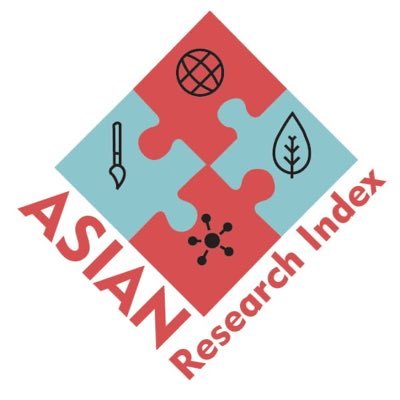Knowledge, Attitude, and Practices of Artificial Intelligence in Undergraduate and Postgraduate Physical Therapy Students
DOI:
https://doi.org/10.55735/tg4rxc70Keywords:
Artificial intelligence , Attitude , Knowledge , Practice , Physiotherapy studentsAbstract
Background: Artificial intelligence has grown in prominence over the last few decades, and its use in medicine is spreading throughout the world. The adoption of AI-based healthcare solutions is lagging in Pakistan and other developing countries. Objective: To analyze the knowledge, attitudes, and practices of Pakistani undergraduate and graduate physiotherapy students about artificial intelligence. Methodology: This multicentre analytical cross-sectional study was conducted six months after ethical approval, including participants from CMH Lahore Medical College & Institute of Dentistry, Lahore, University of Lahore, University of South Asia, University of Management and Technology, Lahore, and Riphah International University, Lahore. Non-probability convenience sampling was used to include both male and female undergraduate, graduate, and postgraduate physiotherapy students aged 18 to 45 years, from 1st to 5th year undergraduate and 1st and 2nd year postgraduate physiotherapy students. While students enrolled in other medical and allied health sciences programs, MBBS and BDS students were excluded from this study. Data collection commenced after obtaining ethical approval, and informed consent was obtained from every participant. Data were collected by online survey and by distributing the questionnaires to physiotherapy students wherever possible. Frequencies and percentages are used to express descriptive statistics. Frequencies and percentages are used for categorical values. Results: Approximately 92% of physiotherapists were aware of artificial intelligence. Of these, 45.6% believed that it should be taught in medical schools, as it is essential to the medical field. Almost 31.4% of respondents think artificial intelligence can enhance the therapeutic relationship between patients and therapists. About 58.6% reported that using AI technologies in their employment had made their jobs easier. However, just 14.5% of students claimed that using AI was simple. Conclusion: Most students had some knowledge of artificial intelligence, and many respondents expressed interest in working on AI-related projects in the future. These findings demonstrate the high level of interest, optimistic outlook, and potential of integrating artificial intelligence in the physiotherapy sector.
Downloads
References
1. Issa WB, Shorbagi A, Al-Sharman A, et al. Shaping the future: perspectives on the Integration of Artificial Intelligence in health profession education: a multi-country survey. BMC Medical Education 2024; 24(1): 1166. DOI: https://doi.org/10.1186/s12909-024-06076-9
https://doi.org/10.1186/s12909-024-06076-9 DOI: https://doi.org/10.1186/s12909-024-06076-9
2. Swed S, Alibrahim H, Elkalagi NKH, et al. Knowledge, attitude, and practice of artificial intelligence among doctors and medical students in Syria: a cross-sectional online survey. Frontiers in Artificial Intelligence 2022; 5: 1011524. DOI: https://doi.org/10.3389/frai.2022.1011524
https://doi.org/10.3389/frai.2022.1011524 DOI: https://doi.org/10.3389/frai.2022.1011524
3. Mosleh R, Jarrar Q, Jarrar Y, Tazkarji M, Hawash MJ. Medicine and Pharmacy Students’ Knowledge, Attitudes, and Practice regarding Artificial Intelligence Programs: Jordan and West Bank of Palestine. Advances in Medical Education and Practice 2023; 14: 1391-400. DOI: https://doi.org/10.2147/AMEP.S433255
https://doi.org/10.2147/AMEP.S433255 DOI: https://doi.org/10.2147/AMEP.S433255
4. Hoffman J, Hattingh L, Shinners L, et al. Allied Health Professionals’ Perceptions of Artificial Intelligence in the Clinical Setting: Cross-Sectional Survey. JMIR Formative Research 2024; 8: e57204. DOI: https://doi.org/10.2196/57204
https://doi.org/10.2196/57204 DOI: https://doi.org/10.2196/57204
5. Alsobhi M, Khan F, Chevidikunnan MF, Basuodan R, Shawli L, Neamatallah Z. Physical therapists’ knowledge and attitudes regarding artificial intelligence applications in health care and rehabilitation: cross-sectional study. Journal of Medical Internet Research 2022; 24(10): e39565. DOI: https://doi.org/10.2196/39565
https://doi.org/10.2196/39565 DOI: https://doi.org/10.2196/39565
6. Rowe M, Nicholls DA, Shaw J. How to replace a physiotherapist: artificial intelligence and the redistribution of expertise. Physiotherapy Theory and Practice 2021; 38(13): 2275-2283. https://doi.org/10.1080/09593985.2021.1934924 DOI: https://doi.org/10.1080/09593985.2021.1934924
7. Sachin PG, Singh S, Khule S, Yadav V, Wakhare S. Musculoskeletal Physiotherapy using Artificial Intelligence and Machine Learning. International Journal of Innovative Science and Research Technology 2019; 4(11): 592-598.
8. Allam RM, Abdelfatah D, Khalil MIM, Elsaieed MM, El Desouky ED. Medical students and house officers’ perception, attitude and potential barriers towards artificial intelligence in Egypt, cross sectional survey. BMC Medical Education 2024; 24(1): 1244. DOI: https://doi.org/10.1186/s12909-024-06201-8
https://doi.org/10.1186/s12909-024-06201-8 DOI: https://doi.org/10.1186/s12909-024-06201-8
9. Özel CB, Ozdemir HY. Levels of Awareness, Readiness, and Anxiety of Physiotherapists Related to Artificial Intelligence. Journal of Basic and Clinical Health Sciences 2024; 8(1): 171-80.
https://doi.org/10.30621/JBACHS.1338903
10. Karthik S, Thakur A, Balasubramanian K. Knowledge, Attitude, and Practices Regarding Use of Simulation-Based Learning (SBL) Among Indian Physiotherapy Teachers. Medical Science Educator 2024; 35(2): 731-740. DOI: https://doi.org/10.1007/s40670-024-02222-6
https://doi.org/10.1007/s40670-024-02222-62024: 1-10.
11. Shi M, Peng H, Lin Y, Ma Y, Qi Y. Perception Research of Artificial Intelligence in Environmental Public Health Physiotherapy Nursing for the Elderly. Journal of Environmental and Public Health 2022; 2124710. DOI: https://doi.org/10.1155/2022/2124710
https://doi.org/10.1155/2022/2124710 DOI: https://doi.org/10.1155/2022/2124710
12. Estel K, Scherer J, Dahl H, Wolber E, Forsat ND, Back DA. Potential of digitalization within physiotherapy: a comparative survey. BMC Health Services Research 2022; 22(1): 496. DOI: https://doi.org/10.1186/s12913-022-07931-5
https://doi.org/10.1186/s12913-022-07931-5 DOI: https://doi.org/10.1186/s12913-022-07931-5
13. Alsobhi M, Sachdev HS, Chevidikunnan MF, et al. Facilitators and barriers of artificial intelligence applications in rehabilitation: a mixed-method approach. International Journal of Environmental Research and Public Health 2022; 19(23): 15919. DOI: https://doi.org/10.3390/ijerph192315919
https://doi.org/10.3390/ijerph192315919 DOI: https://doi.org/10.3390/ijerph192315919
14. Al-Qerem W, Eberhardt J, Jarab A, et al. Exploring knowledge, attitudes, and practices towards artificial intelligence among health professions’ students in Jordan. BMC Medical Informatics and Decision Making 2023; 23(1): 288. DOI: https://doi.org/10.1186/s12911-023-02403-0
https://doi.org/10.1186/s12911-023-02403-0 DOI: https://doi.org/10.1186/s12911-023-02403-0
15. Amin MHJ, Elmahi MAME, Abdelmonim GA, et al. Knowledge, attitude, and practice of artificial intelligence among medical students in Sudan: a cross-sectional study. Annals of Medicine and Surgery 2024; 86(7): 3917-23. DOI: https://doi.org/10.1097/MS9.0000000000002070
https://doi.org/10.1097/MS9.0000000000002070 DOI: https://doi.org/10.1097/MS9.0000000000002070
16. Ahmad MN, Abdallah SA, Abbasi SA, Abdallah AM. Student perspectives on the integration of artificial intelligence into healthcare services. Digital Health 2023; 9: 20552076231174095. DOI: https://doi.org/10.1177/20552076231174095
https://doi.org/10.1177/20552076231174095 DOI: https://doi.org/10.1177/20552076231174095
17. Welling A, Metgud S. Integrating Technology in Physical Therapy Practice: A New Era of Rehabilitation. Indian Journal of Physical Therapy and Research 2023; 5(1): 1-3 DOI: https://doi.org/10.4103/ijptr.ijptr_164_23
https://doi.org/10.4103/ijptr.ijptr_164_23 DOI: https://doi.org/10.4103/ijptr.ijptr_164_23
18. Chaudhari A, Walke R. Role of artificial intelligence and Machine learning in musculoskeletal physiotherapy. Journal of Pharmaceutical Negative Results 2022; 13(6): 2868-70. DOI: https://doi.org/10.47750/pnr.2022.13.S06.369
https://doi.org/10.47750/pnr.2022.13.S06.369 DOI: https://doi.org/10.47750/pnr.2022.13.S06.369
19. Ahmed Z, Bhinder KK, Tariq A, et al. Knowledge, attitude, and practice of artificial intelligence among doctors and medical students in Pakistan: A cross-sectional online survey. Annals of Medicine and Surgery 2022; 76: 103493. DOI: https://doi.org/10.1016/j.amsu.2022.103493
https://doi.org/10.1016/j.amsu.2022.103493 DOI: https://doi.org/10.1016/j.amsu.2022.103493
20. Kharroubi SA, Tannir I, Abu El Hassan R, Ballout R. Knowledge, Attitude, and Practices toward Artificial Intelligence among University Students in Lebanon. Education Sciences 2024; 14(8): 863. DOI: https://doi.org/10.3390/educsci14080863
https://doi.org/10.3390/educsci14080863 DOI: https://doi.org/10.3390/educsci14080863

Downloads
Published
License
Copyright (c) 2025 The Healer Journal of Physiotherapy and Rehabilitation Sciences

This work is licensed under a Creative Commons Attribution 4.0 International License.














